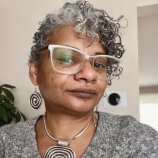Résumé
L’alternance de formes verbales, un phénomène bien connu dans les créoles de l’océan Indien, représente une innovation morphologique émergeante de la transition des parlers populaires français (Chaudenson 2003, Henri 2021). Cette alternance se manifeste en réalité dans tous ces créoles à des degrés divers (Henri et al., 2020). Issue de l’organisation de la structure du paradigme français, ce contraste hérité, mais morphologisé dans le contexte de la créolisation, prendra de nouvelles fonctions en fonction de l’écologie linguistique dans laquelle chaque créole évolue. Dans les créoles de l’océan Indien, l’influence bantoue est évidente : l’alternance verbale marque l’objet. En revanche, le créole de la Louisiane conserve certaines fonctions du français tandis que ceux des Caraïbes présentent un système complexe au niveau verbal où l’aspect lexical (ainsi que les marqueurs TAM) intervient dans l’interprétation des prédicats.

